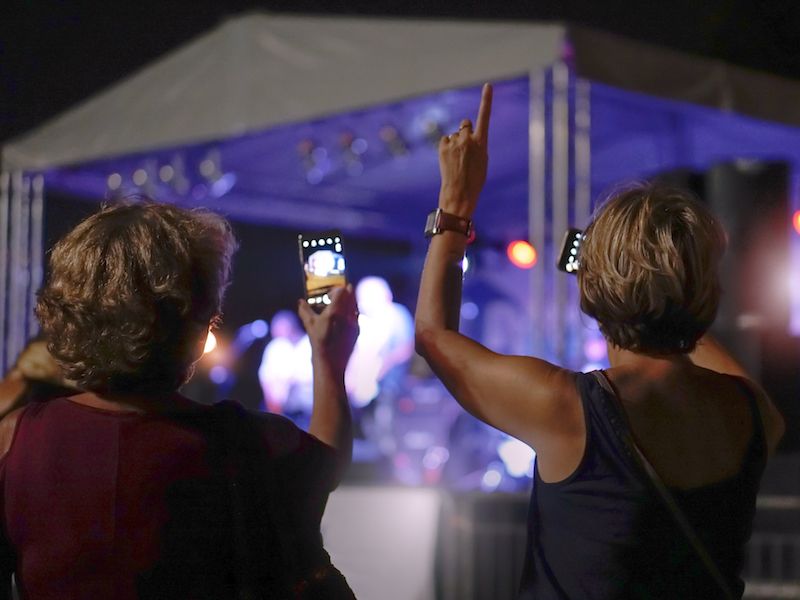
We’ve been looking forward to summer fun all year: going to the beach, relaxing by the swimming pool, and injured hearing? You could find yourself in environmental scenarios or exposed to other loud noises this summer that can be hidden hazards to your ears. Any sounds over 80 decibels could harm your hearing, while enduring hearing loss can take hold in pools or other bodies of water. To keep your ears safe this summer, you need to be conscious of your environment and take precautions. Here are 6 of the summer’s concealed hearing dangers.
Wear Ear Protection at Concerts
Whether you’re at an indoor arena or an outdoor show venue you still should use ear protection during concerts. Live music can reach that are over 90 decibels, even at outside shows, which is inside of the danger zone of hearing loss. That’s the reason why it’s always a smart idea to wear earplugs whether you’re going to a show indoors or outdoors. Earplugs dampen the sound while still letting you to hear and get into the music. If you’re going to a show with young children, consider getting them a heavy duty set of earmuffs because children have more vulnerable hearing than adults.
Your Ears Can be Damaged by Fireworks
Honestly, there are a lot of reasons to avoid fireworks in the summer. We’re not talking about the expert 4th of July fireworks show, we mean the backyard fireworks which every summer cause many of accidents. Backyard fireworks get to volume levels of nearly 155 which can injure your ears as well as causing hand injuries, blindness and home fires. This year, on the 4th of July, enjoy the fireworks from a distance and leave the fireworks to the professionals.
Loss of Hearing Can be Caused by Lawnmowers
If you’re really serious about your yard, it’s likely that you’re out there every week on your mower, using your edger, and trimming your bushes. But have you ever noticed how off your ears feel after you get done, making everything sound muffled? That’s because the constant noise from your lawn tools impact your hearing over time. Maybe you’ve noticed landscapers wearing some type of hearing protection, you should take a cue from them and wear earplugs or earmuffs next time you take care of your yard to make sure your ears stay healthy.
Here’s How to Protect Your Ears When You Take a Swim
Huge numbers of people suffer from swimmer’s ear every summer, which occurs when bacteria-laden water gets stuck inside your ear canal. Swelling and painful earaches are the result when the ear gets infected by the bacteria. It’s not just rivers and lakes that have these bacteria, they can also be found in pools and hot tubs if they aren’t cleaned and treated properly. As long as you have your ears treated by a hearing specialist you should be ok, and no permanent loss of hearing will happen. To protect against swimmer’s ear, however, you will want to wear specialized swimming earplugs in the pool and get your pool water analyzed to make certain the chemical balance is ok.
Water Sports And Boats
The summer season is a taste of freedom for those who enjoy being in a boat on the water, smelling the salt air from the ocean or the fresh breeze of the lake. But, jet ski and boat engines are usually loud,we’re talking more than 100 decibels. Permanent hearing damage can be the result after about 15 minutes of exposure to that much noise. In this circumstance also, putting on a pair of disposable foam earplugs is a smart plan.
Car Races Can Injure Your Ears
It doesn’t make a difference what kind of auto racing you like, midget, Formula 1, drag racing, motorcycle Formula 1. If you go to many auto-races this year, they all present a danger. It’s estimated that volume levels can go over 120 decibels at many races, which is definitely inside the danger zone for hearing impairment. Earplugs are your best friends at these races, although your kids should definitely wear the earmuffs we mentioned earlier. Because you may not be able to enjoy the sounds of any races in the future if you don’t.
